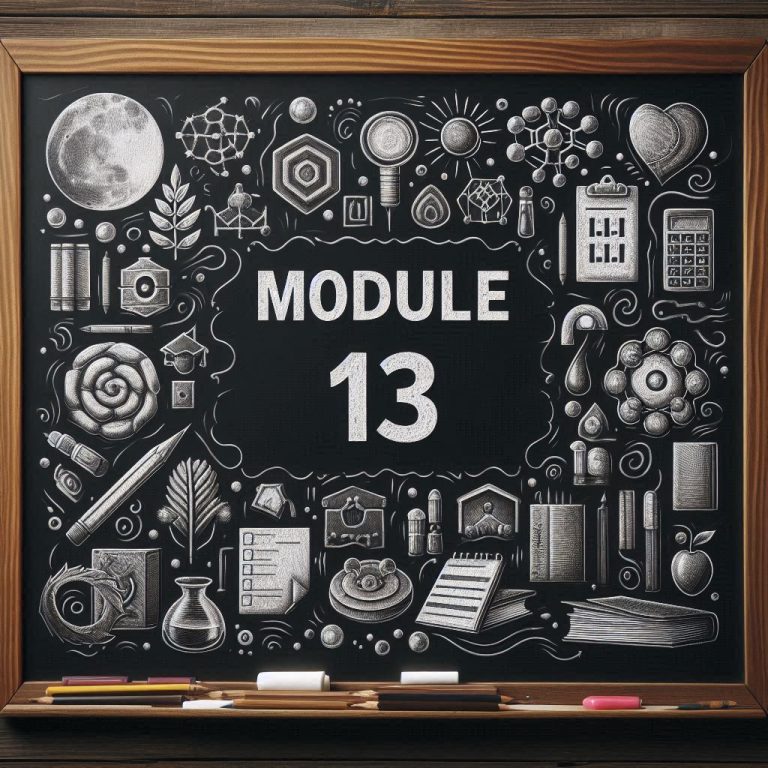Complete Guide to Common Prefixes
Negative Prefixes
il-
Definition: A variant of “in-” meaning “not” or “without,” used before words beginning with “l” Explanation: This prefix creates the opposite meaning of the root word, specifically when the root begins with the letter “l.”
Examples:
- illegal – not legal
- illiterate – unable to read or write
- illogical – not logical
- illegible – not readable
- illicit – not permitted
- illuminate – to light up (note: some il- words are not negative)
- illusion – false perception
- illustrate – to explain with examples
- illness – state of poor health
- illegitimate – not legitimate
im-
Definition: A variant of “in-” meaning “not” or “without,” used before words beginning with “m,” “p,” or “b” Explanation: This prefix negates the meaning of the root word and changes spelling for easier pronunciation.
Examples:
- impossible – not possible
- immature – not mature
- impatient – not patient
- imperfect – not perfect
- immoral – not moral
- immortal – not mortal
- imbalance – lack of balance
- immobile – not able to move
- impartial – not biased
- improvise – to create spontaneously
in-
Definition: Meaning “not,” “without,” “lacking,” or sometimes “into” Explanation: One of the most common negative prefixes, though it can also indicate direction or location.
Examples:
- incomplete – not complete
- incorrect – not correct
- invisible – not visible
- independent – not dependent
- infinite – without end
- inadequate – not adequate
- inappropriate – not appropriate
- indirect – not direct
- insecure – not secure
- inactive – not active
ir-
Definition: A variant of “in-” meaning “not” or “without,” used before words beginning with “r” Explanation: This prefix creates negative meanings and helps with pronunciation when attached to words starting with “r.”
Examples:
- irregular – not regular
- irrelevant – not relevant
- irresponsible – not responsible
- irrational – not rational
- irreversible – cannot be reversed
- irritate – to annoy or inflame
- irrigate – to supply with water
- irresistible – cannot be resisted
- irreplaceable – cannot be replaced
- irrecoverable – cannot be recovered
un-
Definition: Meaning “not,” “opposite of,” or “reverse the action” Explanation: The most versatile negative prefix, used with adjectives, adverbs, and verbs to create opposites.
Examples:
- unhappy – not happy
- unlock – reverse the action of locking
- unfair – not fair
- uncertain – not certain
- uncomfortable – not comfortable
- unaware – not aware
- uncover – remove a covering
- unlimited – without limits
- unusual – not usual
- unimportant – not important
Quantity and Degree Prefixes
over-
Definition: Meaning “too much,” “excessive,” “above,” or “beyond normal” Explanation: Indicates excess, superiority, or going beyond a normal limit or boundary.
Examples:
- overeat – eat too much
- overflow – flow beyond capacity
- overconfident – too confident
- overlook – fail to notice or be positioned above
- overcome – succeed in dealing with
- overhead – above one’s head
- overdue – past the expected time
- overweight – weighing too much
- overnight – during the night
- overseas – in foreign countries
uni-
Definition: Meaning “one” or “single” Explanation: Derived from Latin, this prefix indicates singularity or unity.
Examples:
- uniform – having one form
- universe – all existing matter as one
- unique – one of a kind
- unite – bring together as one
- university – institution of higher learning
- unicorn – mythical one-horned creature
- unilateral – involving one side only
- unanimous – in complete agreement
- unify – make into one
- unicycle – one-wheeled vehicle
Time-Related Prefixes
pre-
Definition: Meaning “before” or “in advance” Explanation: Indicates something that happens or exists before something else in time or order.
Examples:
- preview – see before others
- prehistoric – before recorded history
- prepare – make ready beforehand
- prevent – stop something before it happens
- predict – say what will happen before it occurs
- prefix – word part placed before a root
- premature – happening too early
- prejudice – judgment made beforehand
- preliminary – coming before the main part
- preposition – word placed before a noun
mid-
Definition: Meaning “middle” or “center” Explanation: Indicates the middle point or central part of something.
Examples:
- midnight – middle of the night
- midway – in the middle of a path
- midsummer – middle of summer
- midterm – middle of an academic term
- midwest – central region of the US
- midpoint – exact middle point
- midday – middle of the day
- midweek – middle of the week
- midfield – middle area of a sports field
- midlife – middle period of one’s life
Action and Movement Prefixes
en-
Definition: Meaning “to make,” “put into,” or “cause to be” Explanation: Creates verbs that indicate causing something to happen or putting into a particular state.
Examples:
- enable – make able
- encourage – give courage to
- enlarge – make larger
- enrich – make rich
- endanger – put in danger
- enforce – make others follow rules
- enjoy – take pleasure in
- engage – participate actively
- ensure – make certain
- enlighten – give knowledge to
em-
Definition: A variant of “en-” meaning “to make” or “put into,” used before “p,” “b,” or “m” Explanation: Functions the same as “en-” but changes spelling for pronunciation ease.
Examples:
- embrace – hold closely
- empower – give power to
- employ – use or hire
- emphasize – give special importance to
- embark – begin a journey
- embarrass – cause to feel awkward
- emerge – come out or appear
- emit – give off or produce
- embody – represent in physical form
- empathy – understanding others’ feelings
pro-
Definition: Meaning “forward,” “in favor of,” or “supporting” Explanation: Indicates movement forward, support for something, or professional involvement.
Examples:
- progress – move forward
- promote – advance or support
- protect – keep safe
- propose – suggest or offer
- project – plan or throw forward
- provide – supply or give
- produce – create or make
- promise – pledge to do something
- professional – relating to work or skilled occupation
- proclaim – announce publicly
ex-
Definition: Meaning “out,” “from,” “former,” or “beyond” Explanation: Indicates movement outward, former status, or going beyond normal limits.
Examples:
- exit – way out
- export – send goods out of country
- exclude – leave out
- exhale – breathe out
- expand – make larger
- explore – investigate thoroughly
- express – communicate clearly
- extend – stretch out or make longer
- extract – pull or take out
- exceed – go beyond a limit
trans-
Definition: Meaning “across,” “through,” or “beyond” Explanation: Indicates movement or change from one place, state, or form to another.
Examples:
- transport – carry across
- translate – change from one language to another
- transform – change completely
- transfer – move from one place to another
- transparent – can see through
- transaction – business deal
- transmit – send across
- transition – change from one state to another
- transplant – move from one place to another
- traverse – travel across
Relationship and Connection Prefixes
anti-
Definition: Meaning “against,” “opposed to,” or “preventing” Explanation: Creates words that indicate opposition, hostility, or prevention.
Examples:
- antiwar – opposed to war
- antibody – substance that fights infection
- antisocial – avoiding other people
- antifreeze – prevents freezing
- antibiotic – medicine that fights bacteria
- anticipate – expect or look forward to
- antique – very old object
- antiseptic – prevents infection
- antivirus – software that prevents computer viruses
- antioxidant – prevents harmful oxidation
co-
Definition: Meaning “together,” “with,” or “jointly” Explanation: Indicates partnership, cooperation, or doing something together.
Examples:
- cooperate – work together
- coordinate – organize together
- coexist – exist together
- coauthor – write together with someone
- coworker – person who works with you
- combine – bring together
- compare – examine together for differences
- compete – strive together for same goal
- compress – squeeze together
- correspond – communicate with someone
com-
Definition: A variant of “co-” meaning “together” or “with” Explanation: Used before certain letters for pronunciation ease, indicates joint action or being together.
Examples:
- community – group living together
- communicate – share information together
- combine – bring together
- commit – pledge together with others
- compare – examine side by side
- compete – strive against others
- complete – finish or make whole
- complex – having many parts together
- companion – person who accompanies you
- compromise – reach agreement by giving in partially
con-
Definition: Another variant of “co-” meaning “together,” “with,” or “thoroughly” Explanation: Indicates union, completeness, or intensive action done together.
Examples:
- connect – link together
- continue – keep going
- control – direct or manage
- construct – build together
- contact – touch or communicate with
- convince – persuade completely
- consider – think about carefully
- contribute – give together with others
- concentrate – focus intently
- conclude – bring to an end
Circular Movement Prefixes
circ-
Definition: Meaning “around” or “circle” Explanation: Indicates circular movement, surrounding, or going around something.
Examples:
- circle – round shape
- circuit – complete round path
- circulate – move around
- circus – round arena for performances
- circular – having the shape of a circle
- circumference – distance around a circle
- circumstances – conditions surrounding a situation
- circumscribe – draw a line around
- circumvent – find a way around
- circadian – relating to daily cycles
circum-
Definition: Meaning “around” or “surrounding” Explanation: More specifically indicates going around the outside or surrounding completely.
Examples:
- circumference – distance around the outside
- circumnavigate – sail completely around
- circumscribe – draw around or limit
- circumvent – go around an obstacle
- circumspect – cautious, looking around carefully
- circumstance – condition surrounding a situation
- circumlocution – using many words to avoid direct speech
- circumambulate – walk around something
- circumflex – accent mark curved around
- circumcise – cut around (medical procedure)
Study Tips
- Remember the patterns: Negative prefixes (il-, im-, in-, ir-, un-) all mean “not”
- Notice spelling changes: Prefixes often change based on the first letter of the root word
- Practice with context: Use these prefixed words in sentences to understand their meanings better
- Look for roots: Understanding the root word helps you understand the prefixed word
- Make connections: Many prefixes come from Latin or Greek and appear in related words



